The eighth edition of the Forum on China-Africa Cooperation (FOCAC) is due to be held in Dakar, Senegal, from 29-30 November 2021, Senegal’s foreign minister, Aïssata Tall Sall, and the Chinese ambassador to Dakar, Xiao Han, have announced.
The theme of the conference will be “Deepen China-Africa Partnership and Promote Sustainable Development to Build a China-Africa Community with a Shared Future in the New Era”, according to Chinese foreign ministry spokesman Wang Wenbin.
Speaking in a press conference in Beijing on 5 November, he said that the meeting would “review and assess the follow-up implementation of the outcomes of the 2018 FOCAC Beijing Summit as well as the joint China-Africa response to Covid-19, and chart the course for China-Africa relations for the next three years and more to come.”
He also predicted that the forum would “inject new impetus into the China-Africa comprehensive strategic and cooperative partnership”.
In an interview with the Seychelles News Agency on 17 November, China’s ambassador to the Seychelles, Guo Wei, said that the forum would “adopt measures in such key areas as health, investment and trade, food security, climate change, human resources and digital innovation, with a focus on transforming and upgrading China-Africa cooperation to improve its quality and efficiency.”
Four key themes for the FOCAC agenda
On 8 November, Senegal’s foreign minister and the Chinese ambassador to Dakar, Xiao Han, announced that the forum would adopt four resolutions: The Dakar Action Plan (2022-2024); the 2035 Vision for China-Africa Cooperation; the Sino-African Declaration on Climate Change; and the Declaration of the Eighth Ministerial Conference of FOCAC.
These, predicted Eric Olander, writing on the China-Africa Project website, are likely to “serve as the main pillars” of the forum.
The Senegalese foreign minister said that the forum would appraise the results of China-African cooperation during the Covid-19 pandemic and define how it would continue for the next three years and beyond.
She also announced that the seventh China-Africa Business Conference would take place in parallel with FOCAC at the Diamniadio Exhibition Centre in Dakar and by video conference. The 2018 edition in Beijing hosted more than 1,000 African representatives from over 600 enterprises, business groups, and research institutions.
“FOCAC is our common good. Its success will bring prosperity to current and future generations of Africans and Chinese,” said Aïssata Tall Sall.
In an interview with the Xinhua news agency the minister said she expected the forum to address Africa’s place within the Belt and Road Initiative, underlining its importance to world trade.
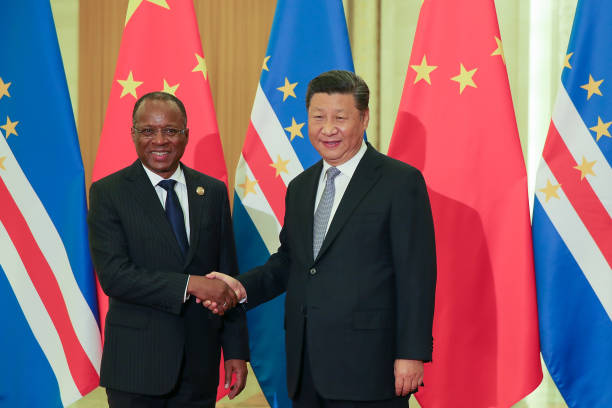
President Xi Jinping not expected to attend
Hundreds of ambassadors and diplomats are expected to attend the forum, which is likely to be a mixture of online and live events.
However, as Lina Benabdallah, assistant professor at Wake Forest University, has pointed out on Twitter, the event will be at ministerial level, which means that heads of state such as Chinese President Xi Jinping will not be attending.
“This is no doubt a disappointment to #MackySall who expressed big enthusiasm for hosting (in addition to co-chairing) the #FOCAC meeting. At this point his Minister of foreign affairs is in charge of hosting. #FOCAC at the summit level just brings higher visibility, more perks,” she writes.
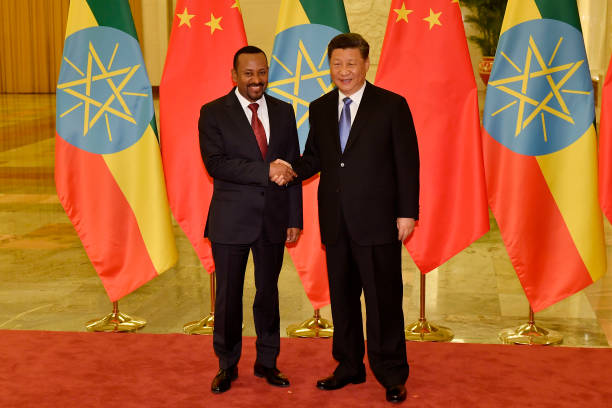
What is FOCAC?
FOCAC is a triennial high-level forum between China and all of the states of Africa, with the exception of Eswatini, which continues to recognise Taiwan.
Modelled on Japan’s Tokyo International Conference on African Development (TICAD), it provides an organising mechanism for Chinese foreign policy toward Africa.
The US Department of Defence’s Africa Center for Strategic Studies describes FOCAC as “a process rather than a series of summits”, as it has spawned a vast number of consultation meetings, policy forums and specialist organs, as described in detail on the FOCAC website.
The Africa Center for Strategic Studies also draws attention to its focus on training and capacity building, with more than 100,000 training slots allotted to African Union member states triennially.
FOCAC has frequently played host to eye-catching Chinese policy announcements and financial commitments. The forum is alternately hosted in Beijing and major African capitals.
Three of the seven editions held so far have included summits attended by the incumbent Chinese president and many of his counterparts across the continent. According to Quartz Africa, twice as many African leaders chose to attend the 2018 edition in Beijing than the UN General Assembly two weeks later.
All the previous editions have included ministerial conferences, and this year’s forum will take place at ministerial rather than summit level.
The China-Africa Business Council’s recent report on China’s private sector investment in Africa looks forward to the event as “another milestone and a new starting point for China-Africa economic and trade cooperation” that will provide “a great opportunity for all African countries to attract foreign investment and expand their international influence”.
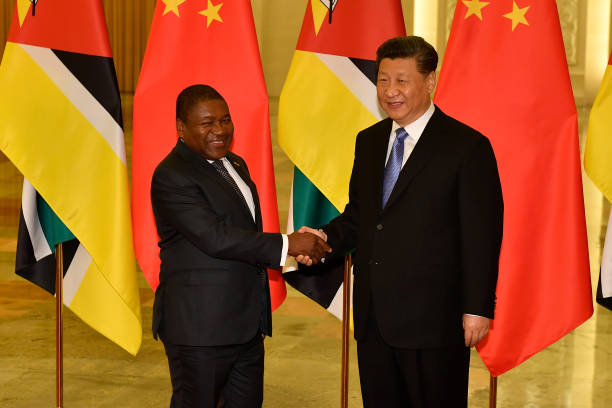
Both Chinese and African enterprises should anticipate the opportunity to enjoy great mutual policy benefits,” says the report.
The forum looks to build on the increasingly close economic relations that have been forged between China and Africa over the last 20 years.
According to the China-Africa Research Institute at Johns Hopkins University, the value of China-Africa trade in 2019 was $192bn, up from $185bn in 2018. In 2019, the largest exporter to China from Africa was Angola, followed by South Africa and the Republic of Congo. In 2019, Nigeria was the largest buyer of Chinese goods, followed by South Africa and Egypt.
On 17 November, Chinese vice commerce minister Qian Keming reported that trade between China and Africa had risen 38.2% year on year to $185.2bn in the January-September 2021 period, a record level.
China is also Africa’s biggest source of foreign direct investment – investment surged from $75m in 2003 to $2.7bn in 2019. Chinese FDI flows to Africa have exceeded those from the US since 2014.
China’s direct investment in Africa hit $2.59bn in the first nine months of 2021, up 9.9% year on year, reported Qian Keming.
Between 2013 and 2018, 45% of China’s foreign aid went to Africa. The number of Chinese workers in Africa by the end of 2019 was 182,745, according to official Chinese sources.
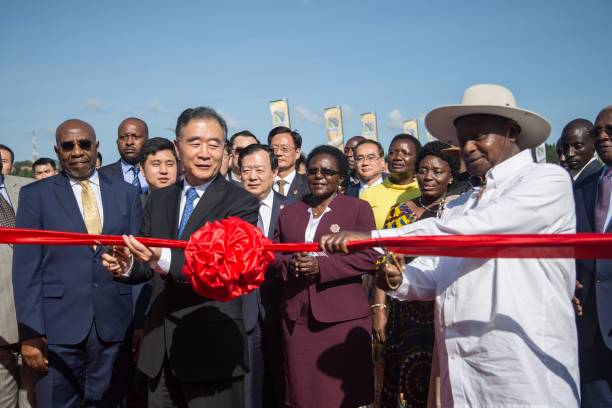
How has FOCAC impacted the financial relationship between China and Africa?
The first official FOCAC was held in Beijing in 2006, following two major ministerial conferences in Beijing and Addis Ababa in 2000 and 2003.
Between 2000 and 2019, Chinese financiers signed 1,141 loan commitments worth $153bn with African governments and their state-owned enterprises, estimates the China-Africa Research Institute at Johns Hopkins University.
In 2000, Chinese investment in Africa was at 2% of US levels, while by 2020 it had reached 55%, according to the US Department of Defense’s Africa Center for Strategic Studies.
In 2015, China unveiled its largest commitment of the conference series, a $60bn package of aid, subsidised lending, and state-backed investment, a commitment repeated in 2018.
Chinese financial support has proved crucial to African countries over the last two decades. Loans from government and state-owned banks have enabled the construction of major infrastructure projects across the continent, including highways, ports, airports and government buildings.
But much of that support has been relatively opaque. According to a research paper released in late September by the China Africa Research Institute, Zambia’s outstanding external debt to Chinese financiers is approximately $6.6bn, almost double the $3.4bn revealed by the previous Zambian government.
The estimates do not include substantial arrears to Chinese contractors for unpaid projects, part of an estimated domestic arrears pile amounting to $2bn.
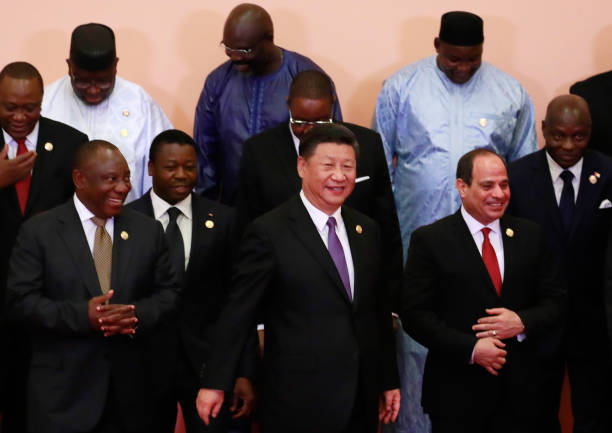
What was promised at FOCAC in 2018?
For the first time in the history of the FOCAC meetings, China’s commitments to Africa stayed flat at FOCAC 2018, with $60bn pledged over three years. Prior forums had seen an exponential growth in commitments, starting from around $5bn in 2006.
According to Annalisa Prizzon, a senior research fellow at the UK-based ODI, the 2018 commitment was more weighted towards aid than previous instalments, with 25% of these commitments – or $5bn a year – in the form of grants, interest-free loans and concessional loans.
In a May speech, Chinese finance minister Wang Yi said that over 85% of the eight major initiatives announced at the 2018 Beijing Summit have been implemented, 70% of the $60bn supporting funds have been disbursed or earmarked, and a large number of cooperation projects have been launched or completed.
Other analysts are less enamoured of the track record of FOCAC in delivering benefits to Africa. Writing for African Business, former Liberian public works minister Gyude Moore says that a vast economic chasm has opened between Africa and China. He argues that this year’s forum presents an opportunity for African states to recalibrate and correct their courses using lessons from China’s past.
Also writing for African Business earlier this year, Hannah Ryder, CEO of Development Reimagined, an African-led international development agency based in Beijing, called for “a more organised, collective approach to engagement” on the part of African leaders at this year’s FOCAC, and summarised her organisation’s blueprint for an African China strategy.
Read original story on Africa Business

